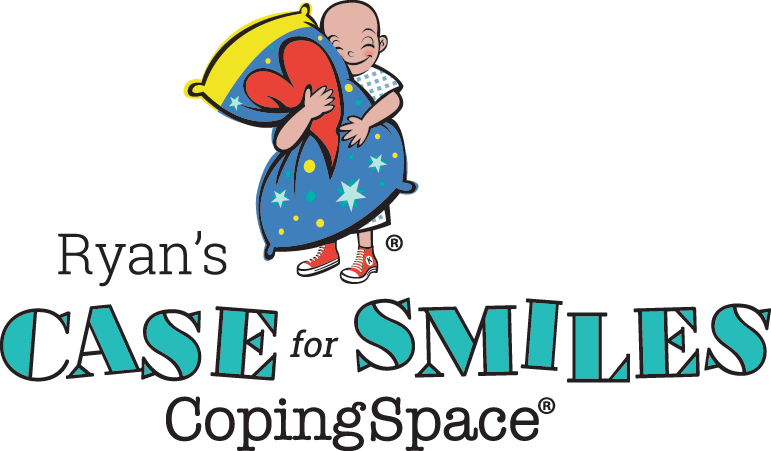BLOG
March Is Social Work Month, But What Even Is a Social Worker?
By Ariel Sugarman-Orens / March 24, 2020
 If your child is being treated for cancer, or another childhood illness or injury, there is a good chance that a social worker is part of your interdisciplinary healthcare team. But you may not know what they do or how they can help.
If your child is being treated for cancer, or another childhood illness or injury, there is a good chance that a social worker is part of your interdisciplinary healthcare team. But you may not know what they do or how they can help.
My name is Ariel and I am a pediatric oncology social worker at Children’s Hospital of Philadelphia (CHOP). With March being Social Work Month, I hope to provide you with education on how hospital social workers can support you and your family throughout your medical journey, so you get all the help you need.
What Is a Social Worker?
Social work is a profession focused on helping people in need. Social workers support individuals, families, and groups of people in developing their own abilities, and accessing resources in their community, in order to solve and cope with obstacles in their everyday lives.
Social workers can work in many different fields, including child welfare, gerontology, mental health, palliative and hospice care, schools, substance abuse, and medical/hospital settings. I will focus here on social workers in the medical field.
What Do Social Workers Do in the Hospital?
Some medical social workers specialize in specific populations – such as pediatrics or oncology – while others might serve a variety of patients with different medical needs. In general, medical social workers are part of a larger interdisciplinary team comprised of other medical professionals, including doctors, nurses, case managers, and psychosocial services providers (child life specialists, psychologists, teachers, creative art therapists, etc.)
The role of a medical social worker may depend on the specific hospital or healthcare setting. At some hospitals medical social workers focus on discharge planning, which is the facilitation of the post-hospital level of care, and any needs associated with that transfer. Other healthcare settings may rely on their social workers to assist patients in navigating the healthcare system, and to connect patients to community resources.
How Can a Social Worker Help My Family?
Social workers exist to support families as a unit throughout diagnosis and treatment. Here at CHOP, the majority of medical social workers assist patients and families in coping with the emotional and logistical challenges of a new or ongoing illness. It is our job to offer support, information, and education throughout a family’s hospitalization or treatment journey. We assess the needs of the patient and their family, provide counseling, and connect them to appropriate resources.
I like to think of medical social workers as a family’s partner on the treatment team for anything non-medical related. Social workers, along with the rest of the psychosocial team, help patients and families cope with emotions, plan and manage life transitions, balance financial and household responsibilities, connect to supports in their community, and transition back to school/life after treatment. If the family has concerns about school, missing work, insurance, transportation, finances, or local lodging for inpatient admissions, their social worker can provide assistance and connect them to appropriate resources.
Help At Diagnosis
It is my practice, as a pediatric oncology social worker, to meet a family during their initial diagnosis. My hope is to provide support – whether that means giving someone the space to process their emotions, or simply sitting with them during this difficult time – and to act as a liaison as the family adjusts to the (often overwhelming) medical system.
After a child is diagnosed with cancer, or a childhood illness, the patient and family face many challenges. While doctors and nurses focus on treating a child’s illness, social workers will work with the medical team to address the holistic needs of the child and the entire family. Social workers help doctors and other healthcare professionals to understand the effects that illnesses may have on a family’s mental and emotional health. Social workers can also provide the medical team with insight into the physical and social barriers to care that a family may be facing.
Support During Treatment
Throughout treatment, my main goal is to be a familiar and comforting face for patients and families. I help them find ways to cope with the shock, sadness, and other emotions they may feel after a diagnosis and throughout treatment. As a treatment/follow-up plan is determined, I assess for logistical barriers to care and concrete needs, and connect families to appropriate state, federal, non-profit, or hospital resources. I also work with families to help plan and manage any life transitions, including communicating with their child’s school or completing employment forms on their behalf.
As a family’s medical journey continues, I provide supportive counseling around adjustment to illness and/or hospitalizations. I assess how they’re coping before, during, and after any changes in treatment, any hospitalizations, or any new information. I then evaluate the behavioral health needs of siblings, patients, and parents, and connect them to other psychosocial members of the care team as appropriate. If getting to the hospital is a barrier or stressor, I partner with families to find psychosocial supports, like a therapist, in their community.
As a social worker, I am grateful to have the opportunity to partner with patients and families in order to help them cope with an unexpected and unplanned medical diagnosis. There is a modern affirmation that I think reflects the profession of social work nicely: “I am a lighthouse rather than a lifeboat. I do not rescue, but instead help others to find their way to shore.”
For more information on social workers, and how they might assist you, talk to your healthcare team or contact your treatment facility’s social work department.
**Statements on this blog reflect the author’s personal opinion and do not represent the views of Ryan’s Case for Smiles. They are also not to be viewed as personal medical advice, but rather for the purpose of general knowledge. The reader should speak to their healthcare team, or their child’s, for medical advice.**
